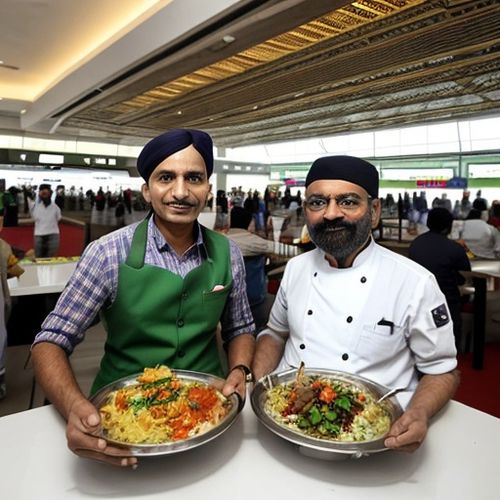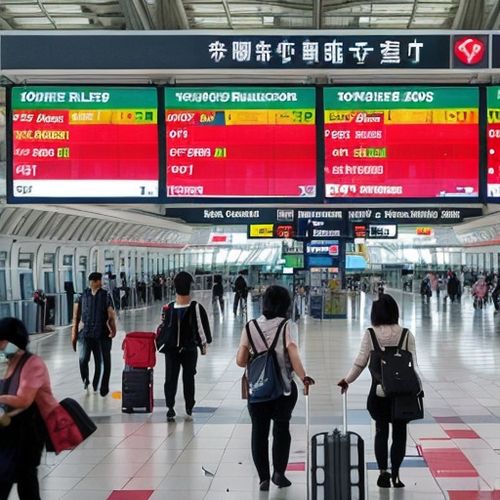The recent inauguration of India's first fully vegetarian airport in the city of Surat has sparked considerable debate within global travel circles. As the world's first airport to enforce an all-vegetarian policy across its terminals, restaurants, and retail outlets, the move reflects India's growing emphasis on vegetarianism as both a cultural and environmental priority. But the critical question remains: Can this unique culinary approach attract international tourists, or will it alienate those accustomed to more diverse dining options?
Surat International Airport's bold decision to eliminate all meat and fish products from its premises is rooted in Gujarat's predominantly vegetarian ethos, shaped by religious and ethical traditions. The state, governed by strict vegetarian policies in many public spaces, has long been a hub for Jain and Hindu pilgrims who adhere to meat-free diets. Proponents argue that the airport's policy aligns with the values of sustainability and non-violence, appealing to a niche but growing demographic of eco-conscious travelers. However, skeptics question whether such restrictions might deter visitors from Western or meat-eating regions who view diverse food choices as integral to the travel experience.
The Cultural Appeal vs. Practical Concerns
For international tourists, India's vegetarian cuisine is often a highlight—a chance to savor rich flavors of dal, paneer, and regional specialties. The Surat airport could capitalize on this by offering gourmet vegetarian experiences that showcase India's culinary diversity. High-end vegan cafes, ayurvedic juice bars, or even cooking demonstrations featuring Gujarati thalis might turn a layover into a cultural immersion. Yet, critics argue that blanket restrictions feel punitive rather than inclusive. Business travelers, for instance, may rely on protein-heavy meals during long journeys, while families with children could struggle with limited options.
Airports globally have evolved into microcosms of their countries' cultures, and Surat's experiment could set a precedent. Singapore's Changi Airport, for example, thrives by blending local hawker fare with international chains. If Surat's vegetarian-only model succeeds, it may inspire similar initiatives in vegetarian-leaning regions like Bali or Tel Aviv. Conversely, failure could reinforce the notion that airports must cater to universal tastes. Early reports suggest mixed reactions: Domestic passengers praise the policy's harmony with their beliefs, while some international travelers express frustration over the lack of choice.
The Sustainability Angle
Beyond cultural factors, Surat Airport's vegetarian mandate dovetails with global sustainability trends. Livestock production accounts for nearly 15% of greenhouse gas emissions, and plant-based diets are increasingly framed as climate solutions. By banning meat, the airport reduces its carbon footprint—a selling point for environmentally aware tourists. However, execution matters. If vegetarian meals rely on imported cheeses or processed mock meats, the ecological benefits diminish. A focus on locally sourced, seasonal produce would strengthen the airport's green credentials while offering travelers an authentic taste of Gujarat's agrarian bounty.
Ultimately, Surat's vegetarian airport is a gamble. It may become a pilgrimage site for vegetarians worldwide or a cautionary tale about over-policing food habits. For now, its success hinges on balancing principle with hospitality—proving that limitation can inspire creativity rather than compromise comfort. As one frequent flyer remarked, "I wouldn’t miss a steak if the aloo paratha is unforgettable." Whether the world agrees remains to be seen.

By Rebecca Stewart/Apr 7, 2025

By Sophia Lewis/Apr 7, 2025

By Emily Johnson/Apr 7, 2025

By Laura Wilson/Apr 7, 2025

By David Anderson/Apr 7, 2025

By Benjamin Evans/Apr 7, 2025

By William Miller/Apr 7, 2025

By Emma Thompson/Apr 7, 2025

By Benjamin Evans/Apr 7, 2025

By Noah Bell/Apr 7, 2025

By Elizabeth Taylor/Apr 7, 2025

By George Bailey/Apr 7, 2025

By Olivia Reed/Apr 7, 2025

By Ryan Martin/Apr 7, 2025

By George Bailey/Apr 7, 2025

By Laura Wilson/Apr 7, 2025

By Laura Wilson/Apr 7, 2025